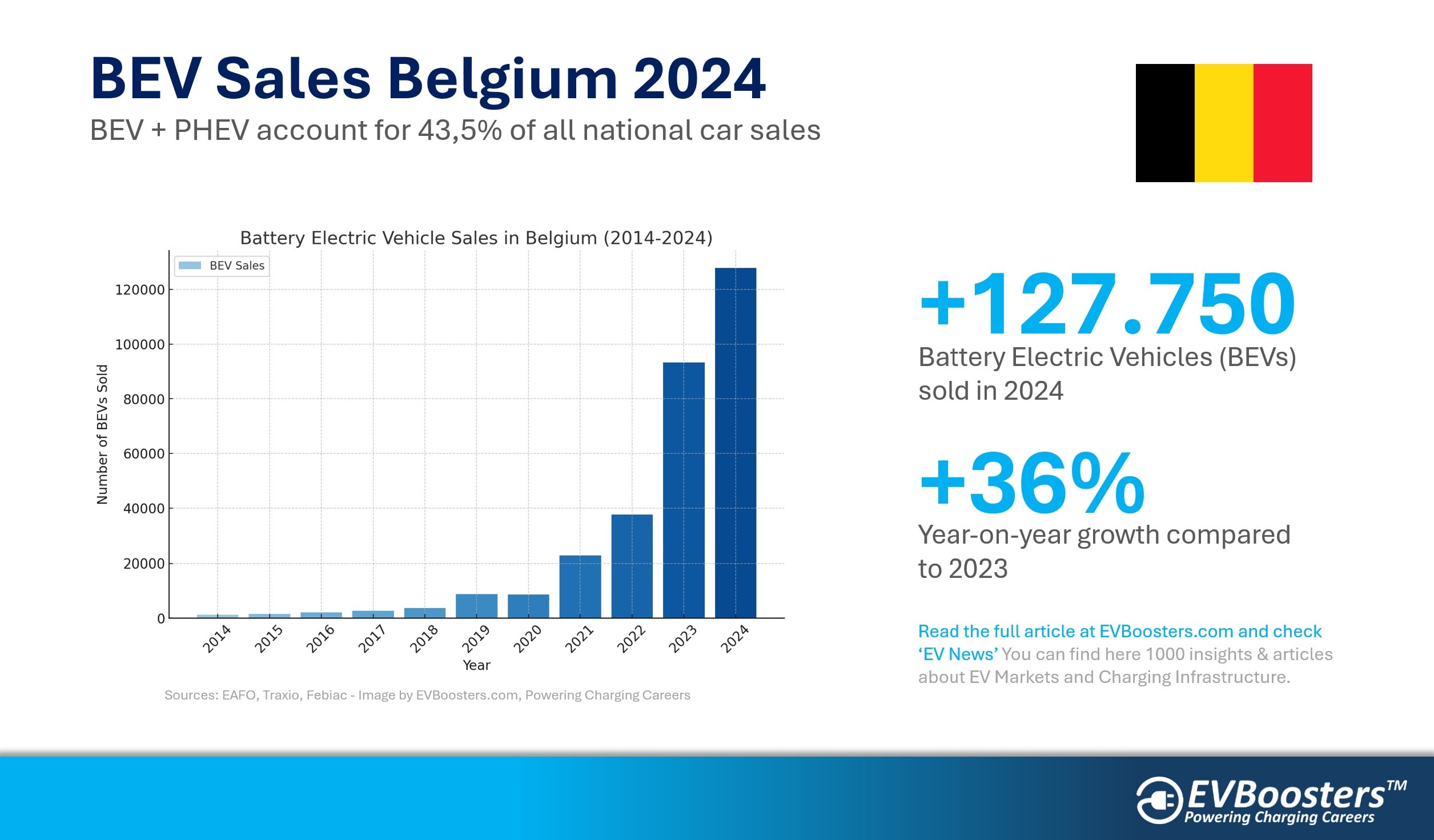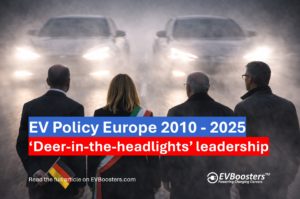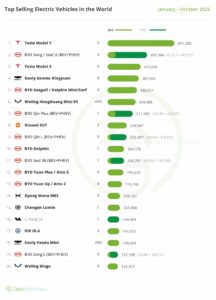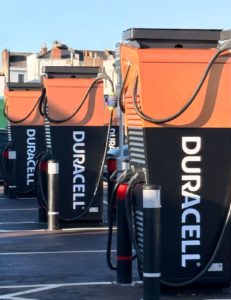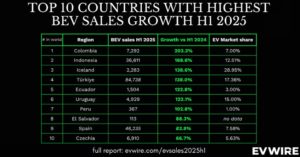2024 another milestone year for EV Sales in Belgium
As Belgium moves forward in the transition to electric mobility, 2024 has proven to be another milestone year. According to EV Belgium, the country registered an impressive 127750 new fully electric vehicles (BEVs), marking a 36% increase compared to 2023.
Electric and hybrid vehicles accounted for 52.3% of all new car registrations for the first time, surpassing traditional internal combustion engine (ICE) vehicles. BEVs alone made up 28.5% of the market, overtaking plug-in hybrids (15%). The growing adoption of BEVs was primarily driven by corporate fleets, which accounted for 86.7% of new BEV registrations in 2024.
Belgium’s Public Charging Station Network increased+72% in 2024, reaching 83111 charge points
At the same time, the number of charging points surged by 72%, reaching a total of 83111. These figures not only underscore the commitment of Belgian companies and consumers to sustainable transport but also align with the country’s long-term objective of 2 million electric vehicles by 2030.
Evolution of the overall Belgian Car Market 2017 – 2024, BEVs surpassed PHEV
The total number of new car registrations in 2024 was 448277, reflecting a 6% decline compared to 2023. According to sector federation Febiac, this drop was expected due to the phasing out of certain tax advantages for plug-in hybrids in the corporate sector. However, consumer confidence in electric mobility increased, partly due to the introduction of the Flemish EV subsidy program.
Belgium is also witnessing a major shift in powertrain preference. For the first time, battery-electric vehicles (28.5%) have surpassed plug-in hybrids (15%), marking a historic milestone. Experts predict that by 2025, BEVs will represent at least 50% of corporate fleet sales.
EV Registration Trends 2014-2024
Belgium has experienced consistent growth in BEV registrations over the past decade:
While the total number of new cars has fluctuated—peaking at 550003 in 2019 before declining to 366303 in 2022—BEVs have steadily increased their share, reaching a record high in 2024.
Challenges and Opportunities
Secondhand BEV Market
Despite the rapid growth of new BEV sales, the secondhand market remains a challenge. In contrast to the new car market, the secondhand sector is still dominated by internal combustion engine vehicles. In 2024, Belgium recorded 727650 used car transactions, up 5.6% from 2023. However, BEVs only accounted for 3.2% of this market, far behind petrol (55.1%) and diesel (30.6%).
Key factors influencing the slow uptake of secondhand BEVs include consumer hesitation, concerns over battery degradation, and the high depreciation rate. The resale value of BEVs has dropped by 30-40% within four years, making it a less attractive option for used car buyers.
Strong Government Policies & Incentives
Belgium’s EV success hinges on strong government policies, including tax incentives for corporate fleets and regional subsidies.
However, industry experts warn against a “stop-and-go” approach that could hinder market growth. A stable and predictable policy framework is essential to encourage further adoption.
Outlook for 2025
The Belgian EV market is expected to continue its upward trajectory, driven by:
-
The launch of more budget-friendly BEVs from established and emerging brands.
-
Increased availability of public and home charging infrastructure.
-
The potential for 100% BEV corporate fleets by 2025.
“Belgium’s EV journey demonstrates the importance of consistent policy support and innovative infrastructure solutions. If we continue on this path, we can achieve our climate goals and strengthen our leadership in the green transition,” According to Bart Massin, Chairman of EV Belgium.
Foundation for continued growth
Belgium’s EV market has made remarkable strides in 2024, setting a strong foundation for continued growth. However, to sustain momentum, policymakers and industry leaders must focus on expanding charging networks, facilitating grid integration, and ensuring stable long-term incentives. As electric mobility becomes the norm, Belgium has a unique opportunity to reinforce its position in the sustainable transport revolution, benefiting both the economy and the environment.
Sources: EAFO, EV Belgium, Febiac, Traxio

